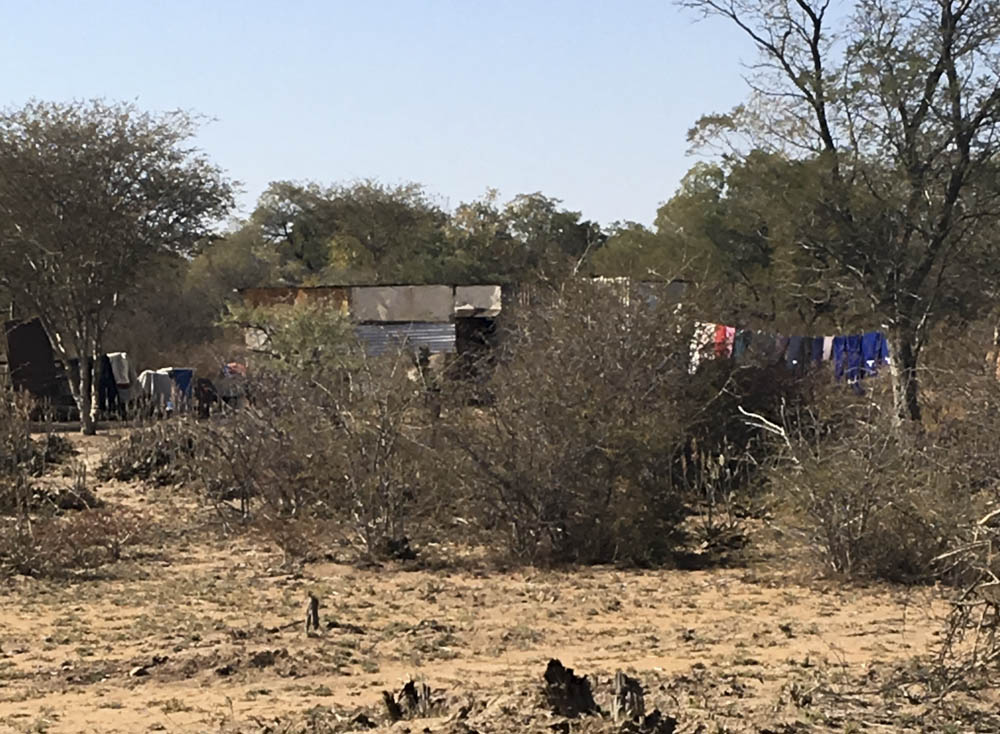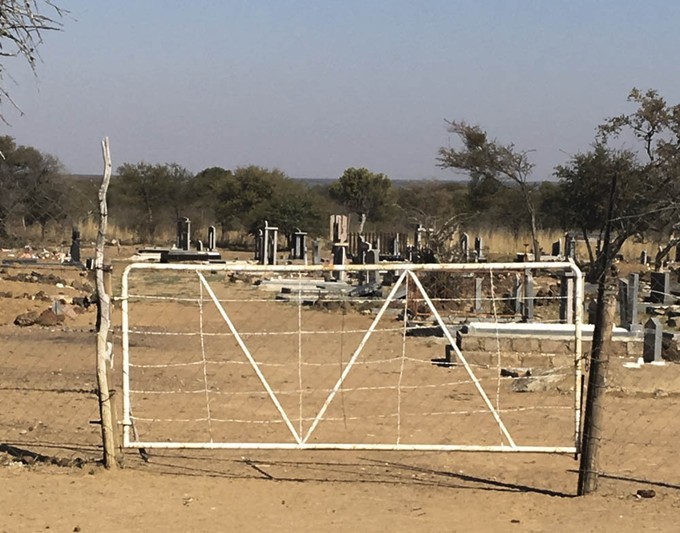Wildebeestkuil residents have been waiting 15 years for their land
A stone’s throw away but no land in sight
Seventy-one year old Sechele Moema is the chairperson of the Wildebeestkuil Land Claim Committee. He represents a community that has been in a fifteen-year conflict with a chief and headman who continue to flout interdicts stopping them from subdividing the community’s land, selling portions of it, allocating it to outsiders and making decisions about development on it – land which was successfully claimed in 2001 but never handed over to the community.
It is an indictment of the land reform process that a piece of land which has successfully been claimed has still not been returned to the community and is used for the benefit of a chief who has no rights to it.
This is not an isolated case. In a media statement in September this year, the Chief Land Claims Commissioner indicated that although 3.32 million hectares have been successfully claimed, only 1.9 million hectares have been transferred to beneficiaries. There are many communities throughout South Africa with successful claims who are still waiting to move onto the land; and the wait is leaving the communities in limbo and the land vulnerable to the actions of traditional leaders and illegal occupiers.
Moema is the descendant of a family who lived on the Wildebeestkuil farm. In 1925, about 95 families who were living on the land, pooled their money together and purchased the land. The land was managed as a collective and governed by its own indigenous laws.
At the time, the land was not divided as it is today. But in 1950, the apartheid government moved families from one portion of it to another. The families left behind their church, schools, houses and fields. The new portion of the land was already occupied by another community. It became overcrowded and a number of cattle died because there was not enough grazing. The old portion was taken over by the South African Defence Force, but they allowed people to move onto the land.
In 1998, the Wildebeestkuil Land Claim Committee lodged a claim for the old portion of which they had been dispossessed. Since the SADF had allowed people to move onto the land, there was an existing community living there in an informal settlement (which has rapidly grown over the years). The claim was successful and in 2001, the Regional Land Claims Commission gathered together the communities living on the different portions of the land to tell those living on the portion that was the subject of the claim that no further shacks or houses could be built on the land.

This did not stop the chief and headman of the Bakgatla ba-Mosetla, traditional leaders appointed during apartheid to administer the land but with no other rights to it, from allocating land to outside people. The chief and headman have also sold portions of land, allowed mining to take place and also given permission for powerlines to be erected on it.
The Wildebeestkuil community live a stone’s throw from the land and witness the brazen flouting of their rights every day.
The community wrote to the Commission in 2003 to voice their discontent about the continuous growth of the settlement but nothing was done by the Commission to stop these activities. In 2009, the claimants were invited to the Commission’s offices in Pretoria where the issue was again discussed. Again, no action was taken.
In 2010, the community received a letter from the Commission telling them that they must opt for compensation, but this was rejected by the community who still want to acquire the land.
The Wildebeestkuil Land Claim Committee approached the Legal Resources Centre (LRC) in 2014. Negotiations with the legal representatives of the chief and headman resulted in the LRC seeking evidence of the extent of the land under claim. Meanwhile, in their replies to the allegations made by the Wildebeestkuil Land Claim Committee, the chief and headman contradicted themselves, arguing that they were not allocating land, but then saying that they would stop allocating it.
In 2015, an inspection of the land was done by the LRC, the Wildebeestkuil Land Claim Committee, the chief and headman and staff from the Commission. It was agreed that the chief and headman would stop allocating land and that a surveyor would be contracted to survey the land and report on the boundaries of the farm and the portion that fell under the claim. The surveyor’s report was inadequate but does give some estimations of the size of the land and settlement (grazing land was estimated at 841 ha and settlement estimated at 80 ha).
The claimants know that the 80 ha portion of their successfully claimed land cannot be used and have agreed that only the untouched land be handed back to them, with compensation to be paid for the portion that has been used for the informal settlement. Unfortunately, the surveyor’s report also shows that the land has been overgrazed and eroded.
Today, in 2016, we have yet to speak of justice. To add insult to injury, the chief and headman continue to allocate portions of the land to outside people.
The community have acted in good faith with their dealing with the Commission and it is inexplicable that their continued requests are acknowledged but never acted on. They accuse the Commission of delaying tactics, but a 15 year wait is more than just a delay; it’s a travesty.
The frustration of the Wildebeestkuil community is that of millions of people in South Africa who feel that the constitutional project is only as good as its implementation.
Court action in September 2016 has resulted in a successful interdict against the chief and headman’s actions. This was Part A of the court action. Part B is a review of the 2010 decision of the commission to not restore the land to the community but rather for the community to accept compensation and/or alternative land. We await a court date for this hearing.
Like Moema, many claimants throughout South Africa have grown older waiting for their land to be restored to them, watching while inter-community conflicts and undemocratic practices of traditional authorities slowly whittle away their land. It is important that the Land Claims Commission act swiftly and decisively to complete the transfer of land to claimants, and that the Department of Rural Development and Land Reform step in when the inaction of the Commission results in injustice.
Views expressed are not necessarily those of GroundUp.
Support independent journalism
Donate using Payfast

Don't miss out on the latest news
We respect your privacy, and promise we won't spam you.
Next: Happy Valley: where people get their lives back on track
Previous: Opposing groups protest at Nelson Mandela Metropolitan University
© 2016 GroundUp. 
This article is licensed under a Creative Commons Attribution-NoDerivatives 4.0 International License.
You may republish this article, so long as you credit the authors and GroundUp, and do not change the text. Please include a link back to the original article.

